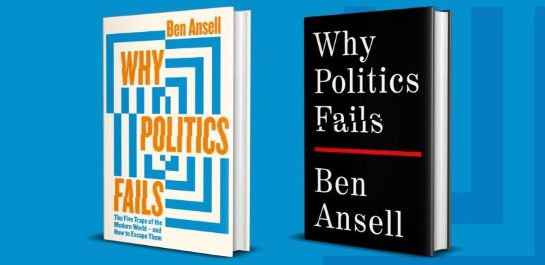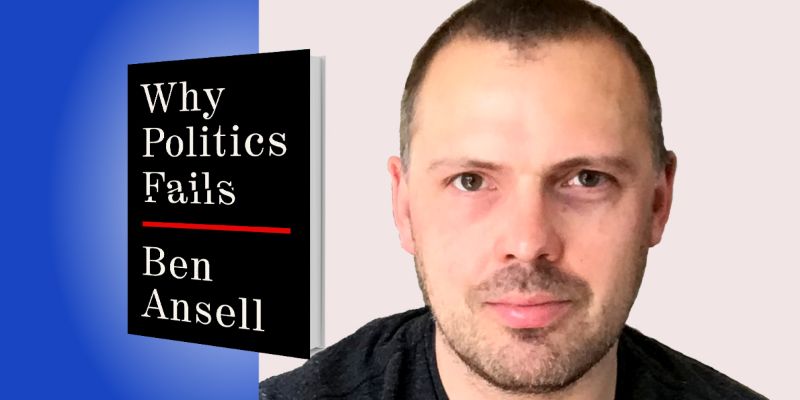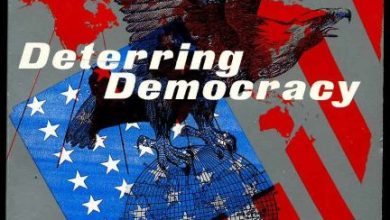Why Politics Fails – A Critical Summary

Review of the book ‘Why Politics Fails’, authored by Ben Ansell a British political scientist and professor of comparative democratic institutions at the University of Oxford.
- His academic work is focused on democracy, inequality, political economy, and how power functions within institutions
- Politics fails not because people are bad, but because institutions are strong enough to resist change but weak enough to avoid accountability.
By Noor Muhammad, Advocate | Islamabad
Politics is often presented as a system designed to create order, justice, equality, and representation. Yet almost everywhere in the world people feel betrayed by politics. Democracies are dysfunctional, authoritarianism is rising, inequality is increasing, wealth is concentrated, and institutions meant to protect the public now shield power and privilege. Ben Ansell’s book Why Politics Fails attempts to answer a painful and urgent question: if politics is supposed to solve problems, why does it so often create new ones?
About the Author and His Work
Ben Ansell is a British political scientist and professor of comparative democratic institutions at the University of Oxford. His academic work is focused on democracy, inequality, political economy, and how power functions within institutions. He has written major works like Inequality and Democratization, The Political Economy of the Welfare State, and numerous scholarly articles on voting behavior, state-building, and democratic backsliding. Why Politics Fails, published in 2023, is his attempt to speak beyond academia and explain to ordinary citizens why democratic promises remain unfulfilled. He identifies five political dreams – democracy, equality, solidarity, security, and prosperity – and shows how each collides with harsh realities.
As a student of law and politics, I felt it is essential to present a detailed summary to my readers. In an age when political debate is polluted by propaganda and shallow judgments, this book provides a deeper diagnosis of political failure. It also connects with what many of us in developing countries experience: democracy trapped by institutions, elite capture, and structural imbalance of power.
 Why Democracy Fails – Institutions as Traps
Why Democracy Fails – Institutions as Traps
Ansell argues that democracy fails not because people hate freedom, but because institutions that should serve democracy often control and restrict it. Elections are held, but real power lies with unelected entities: military establishments, wealthy corporations, bureaucratic elites, media owners, global financial institutions, and sometimes even courts. Democracy gives people the right to vote, but not the power to change how wealth is distributed or how power operates.
The judiciary can overturn parliamentary decisions, the military can dictate foreign policy, corporations fund political campaigns, bureaucrats delay or sabotage reforms, and international lenders like the IMF impose economic decisions on sovereign states. So, people vote, but decisions remain in the hands of the few. This creates a democracy without power—only the illusion of participation.
Equality vs. Elites
Another dream is equality, the hope that everyone has fair access to wealth, education, health, and justice. Yet in reality, capitalism and politics together create inequality. Wealthy people invest in politics, shape laws, avoid taxes, shift money abroad, and create policies that favor themselves. Poor people vote, but rich people rule. Ansell shows how housing wealth divides societies—those who own property want higher prices, those who don’t want affordable housing. Politicians are trapped between voters and wealthy lobbies. They promise both fairness and profit, but end up doing neither.
This is not just an economic failure but a political one. When inequality grows, democracy becomes a tool for the rich to protect their privilege. Even education becomes a way to reproduce class rather than remove it. Meritocracy turns into an excuse for inequality.
Solidarity vs. Identity
Humans dream of solidarity—standing together as a society, sharing burdens, protecting the weak. But politics divides people into tribes: race, religion, language, nationality, ideology, and social class. Ansell shows how welfare systems, designed to support all citizens, become politically weak when people stop seeing each other as equals. In many countries, people feel their taxes are supporting “others” rather than members of their own group.
Immigration, globalization, and identity politics deepen these divides. Instead of solidarity, fear and suspicion rise. Populist leaders use this anger to win power, not to unite people, but to control them. They blame refugees, minorities, journalists, or foreign powers for all problems. This weakens social trust, and when trust dies, democracy becomes a battlefield of hate.
Security vs. Fear
One of the most fundamental duties of the state is to provide security – safety from violence, crime, and foreign threats. But in trying to protect citizens, states often become authoritarian. Surveillance cameras, internet monitoring, anti-terror laws, and secret intelligence operations increase. Citizens demand security, but end up losing privacy and freedom. Ansell highlights this paradox: the more we fear violence, the more power we hand over to the state.
Meanwhile, the military and security institutions often act independently of public control. They shape national policy, foreign alliances, and even internal politics. In some countries, the military is an invisible parliament, more powerful than elected representatives. In others, corporations producing weapons become so rich that peace becomes unprofitable. The dream of security ends in a cycle of war, fear, and state control.
Prosperity vs. Greed
Every nation wants prosperity – jobs, innovation, development, and stable markets. But capitalism without regulation turns prosperity into exploitation. Ansell describes how governments compete to attract investment by cutting taxes, reducing labor rights, and ignoring environmental damage. Corporations become global, but justice remains national. If a company pollutes or violates rights, it can just move to another country. Political leaders are forced to choose between economic growth and social justice. Usually, justice loses.
This also explains why climate change is neglected. The science is clear, the threat is real, but economic interests block action. Politicians fear losing votes, industries fear losing profit, and citizens fear losing jobs. So the world keeps burning.
How Democracy Becomes Prisoner of Institutions
Throughout the book, the most powerful idea is that democracy is not just about elections, but about who controls decisions after the votes are counted. If those decisions are controlled by unelected institutions—military, corporate elites, bureaucracy, judiciary, or foreign creditors—then democracy is only a ritual, not a reality.
This is visible in both the West and developing nations. In Western countries, corporations, media, and billionaires dominate politics through campaign funding and lobbying. In developing states, like many in Asia, Africa, and Latin America, military establishments, feudal landlords, powerful judges, and foreign financial institutions overpower elected governments.
Therefore, politics fails not because people are bad, but because institutions are strong enough to resist change but weak enough to avoid accountability.
As a lawyer and mediator, I see how law can both protect and oppress. Laws created to ensure justice are sometimes used to delay justice. Courts meant to defend rights sometimes freeze reforms. Bureaucracies built to implement decisions often become barriers to implementation. It is in this background I feel compelled to share Ansell’s message with my readers – politics is not failing because of bad voters or bad leaders alone, but because systems of power are designed to resist transformation.
Ben Ansell does not deny that solutions exist. He argues that compromise, trust, and institutional reform can improve politics. But these solutions require courage, sacrifice, and long-term thinking. Politics fails when short-term desires defeat long-term survival.
Democracy is still the best system we have, but it is fragile. It is trapped between institutions that refuse to change and citizens who lose hope. If politics continues to fail, people will either surrender to authoritarianism or remain trapped in chaos. The choice is ours.
___________________
 Noor Muhammad is a Lawyer and Mediator, based in Islamabad. Email: noormuhammad@gmail.com
Noor Muhammad is a Lawyer and Mediator, based in Islamabad. Email: noormuhammad@gmail.com




